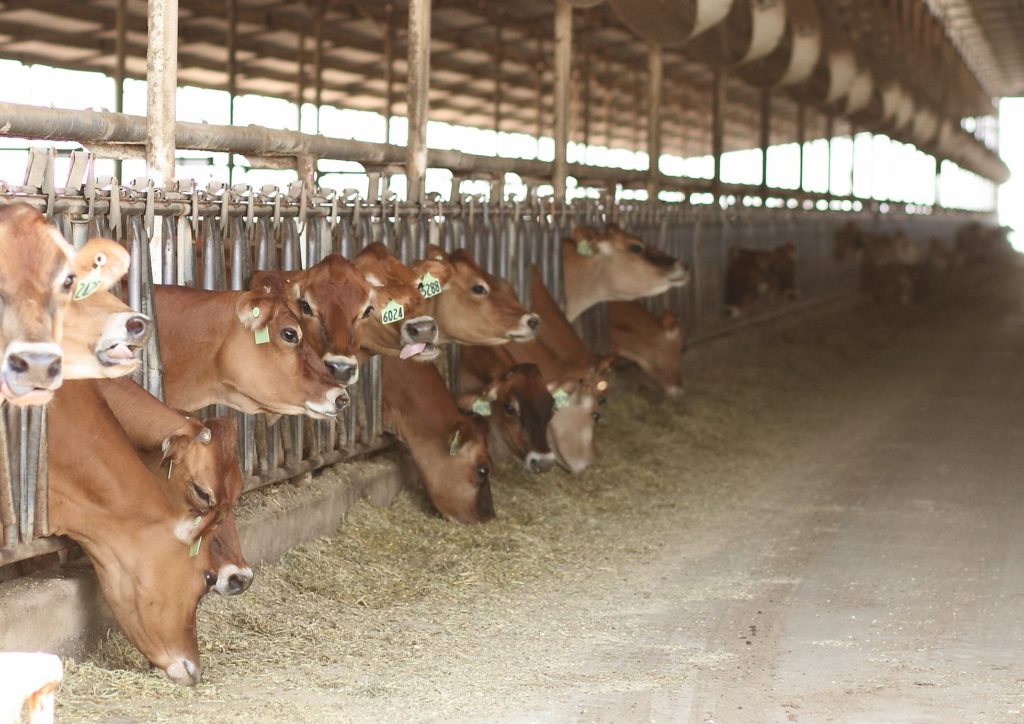
The case between Corcoran and the 108-year-old Curtimade Dairy was originally slated to go before a judge in August. But for now, a court date has yet to be decided.
In 2019, lawyers with Visalia’s Farley Law Firm filed the suit against Curtimade on behalf of the City of Corcoran for nitrate contamination in their water supply they claim comes from cow manure. The suit has four charges — nuisance, trespass, negligence and unfair business practices.
Contamination concern
Officials at the city believe lagoons on the 1,000-acre-plus dairy allowed for nitrates found in cow manure to leech into the water supply, incurring millions of dollars of costs to treat the contamination. Owners of the dairy say Corcoran officials have not negotiated a remedy to the problem in good faith. They also say the city, surrounded by farms, is singling them out and that poor well quality, coupled with years of drought, have caused the problems.
In the early 2000s, nitrate levels surpassed maximum levels allowed by the U.S. Environmental Protection Agency, according to the lawsuit filed by Michael Farley with the Farley Law Firm on behalf of the City of Corcoran. Because the dairy is located in Tulare County, the lawsuit was filed in Tulare County Superior Court. Corcoran City Attorney Michael Schulte and City Manager Kindon Meik declined an interview request for this story.
The city alleges the way the lagoons were constructed allows for nitrates to seep into the groundwater, affecting five municipal wells. Two of those wells were constructed in 1975 and one was built in the early ‘80s.
Dairies use lagoons to hold manure water, using it to fertilize crops.
Dealing with nitrates
Corcoran suffers from arsenic contamination, in addition to nitrates. In 2006, construction was completed on an arsenic treatment facility in Corcoran. Beginning in 2010, the city began using the treatment facility to dilute water from more contaminated wells with that from wells not as contaminated with nitrates by blending the water together, according to the lawsuit.
This strategy has helped bring down nitrates to an acceptable level, says Chad Fischer, Visalia District Engineer with the Central Valley Regional Water Quality Control Board, which oversee Corcoran.
Shallower wells, like the older ones around Curtimade Dairy, are more susceptible to nitrate contamination as nitrates come from surface sources, says Fischer. Over the years, the city began digging deeper wells.
“They deliver water that meets drinking water standards,” says Fischer. “But they do quite a bit of work to be able to do it.”
The lawsuit said that in the past, the contaminated wells used to make up 85% of Corcoran’s tap water. But because of the need to blend the water with water from other sources, those wells now only account for 32% of tap supply. Because of water needs, the City cannot completely stop usage of the water wells.
Surprise lawsuit
Tessa Hall, fourth-generation owner/operator of Curtimade Dairy, said that in 2015, when they first received the certified letter of the city’s intent to sue, it came as a surprise.
It is common practice for dairies to build lagoons to store the hundreds of thousands of pounds of manure produced annually. In the 1980s, the lagoon built by her grandfather was surveyed and permitted by both Tulare County and the Central Valley Regional Water Quality Control Board. She says they added a clay layer according to requirements.
“I’m sure my grandpa was scrambling at the time in the ‘80s to do extra, but thank God we did,” Hall said.
Where Hall has her concerns is that her dairy was singled out among the multitude of dairies and farming operations surrounding Corcoran.
“Central Valley water is a bathtub of nitrates,” Hall said. “To distinguish one discharger out of thousands is extremely difficult to do.”
The lawsuit contends that the lagoons were not constructed properly and that a pipe pumped water from the lagoons to a field where it then seeped into the ground.
Hall says that almost all farms have irrigation pipelines like theirs to move water around. They instituted a certified waste management plan and a nutrient management plan under consultation of an agronomist.
The Control Board establishes regulations and permitting for discharge that could affect water quality, said Doug Patteson, supervising engineer at the Control Board.
They monitor the size of pumps and operating conditions and make sure a facility has the capacity to handle the amount of waste it produces.
Curtimade has all the appropriate permits, said Patteson.
Meeting inspection standards
They submit to annual inspections, sampling and reporting to do so.
Curtimade also participates in the Representative Monitoring Program administered by the Control Board. Environmental data gathered from them and 41 other dairies act as bellwethers for other dairies in the region. Nearly all dairies report nitrate levels above drinking water standards, Patteson said.
The lawsuit states that a test determined that nitrates in two of the wells nearest Curtimade can back traced back to animal sources. Both of those wells were constructed in 1975. Hall says that years of subsidence and dry aquifers damaged well integrity, allowing for nitrates to contaminate the water.
Hall says that the City has not been negotiating in good faith.
In 2016, after the dairy was served the letter of intent to sue, both Curtimade and the City of Corcoran were required to enter into mediation, brokered in part by the Control Board.
Salty solution
Representatives from the Control Board suggested finding a solution to the problem through one of their programs — the Central Valley Saline Coalition.
The CV Salts program is made up of management zones in areas identified as having been contaminated by salinity or in this case — nitrates. Committees overseeing management zones are made up of either nitrate depositors or those impacted by nitrate pollution, such as municipalities. Part of the CV Salts program involves coming up with short-term as well as long-term action plans to address nitrate and salinity contamination.
“We thought there was a better way than hiring a bunch of attorneys and fighting it out in court,” said Clay Rodgers, assistant executive officer for the Control Board. Possible solutions using the CV Salts program ultimately were not accepted by all parties, Rodgers said.
Rodgers had hoped that a negotiated settlement might be able to speed up implementation of the early action plan for the management zone surrounding Corcoran, which is identified as priority one by CV Salts.
Swapping water
Additionally, the Corcoran Irrigation District offered to exchange water with the city in exchange for lower-quality water for use in farmland, according to Tricia Stever Blattler, executive director of the Tulare County Farm Bureau. Some of the negotiations took place at both the Tulare County and Kings County farm bureaus.
“That to me was a very realistic solution that could have worked well, but money was one of the hang ups,” said Blattler. The Tulare County Farm Bureau, along with the Kings County Farm Bureau, recently raised money to assist with legal fees for Curtimade Dairy.
Grant funding from Senate Bill 200 to treat Corcoran water also went unexplored prior to litigation, said both Blattler and Hall.
The lawsuit is for $65 million. The city claims that testing and monitoring for wells would cost $1 million. Capital costs for infrastructure would cost $8 million long-term. The cost for operations would be between $32 million and $56 million.
“There are solutions out there,” said Hall. “It doesn’t have to be this contentious, tearing at the fabric of what the Corcoran community made as its way of doing things.”

























